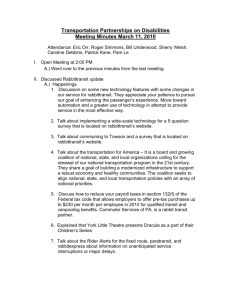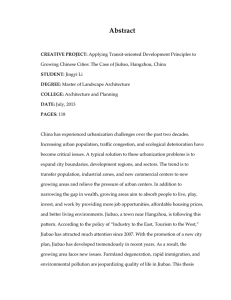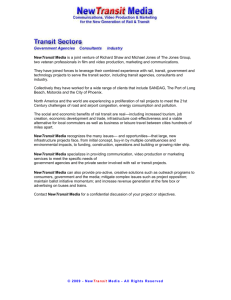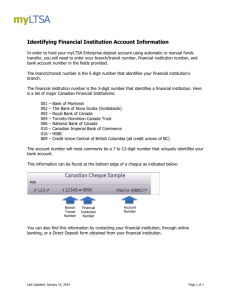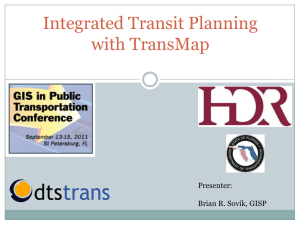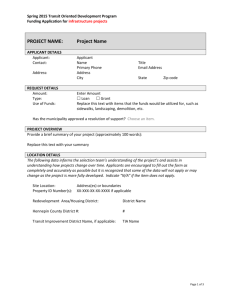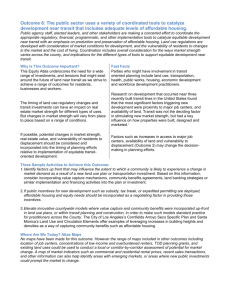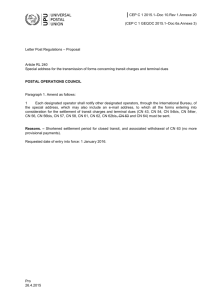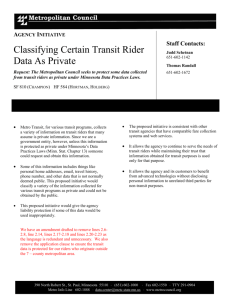the executive summary
advertisement
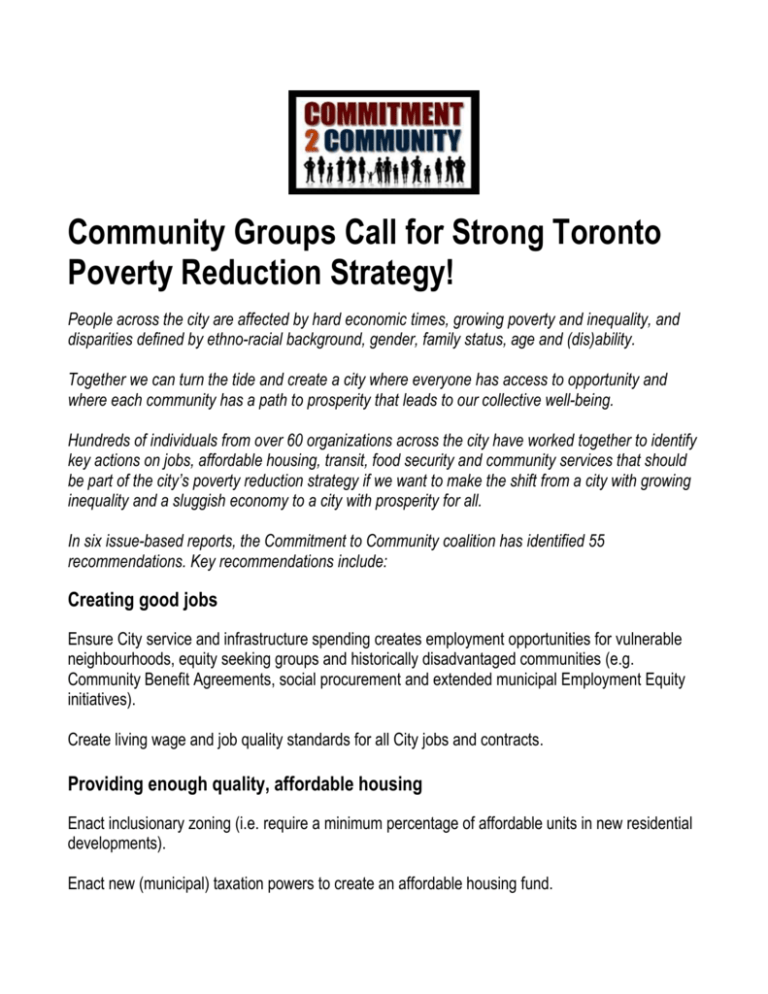
Community Groups Call for Strong Toronto Poverty Reduction Strategy! People across the city are affected by hard economic times, growing poverty and inequality, and disparities defined by ethno-racial background, gender, family status, age and (dis)ability. Together we can turn the tide and create a city where everyone has access to opportunity and where each community has a path to prosperity that leads to our collective well-being. Hundreds of individuals from over 60 organizations across the city have worked together to identify key actions on jobs, affordable housing, transit, food security and community services that should be part of the city’s poverty reduction strategy if we want to make the shift from a city with growing inequality and a sluggish economy to a city with prosperity for all. In six issue-based reports, the Commitment to Community coalition has identified 55 recommendations. Key recommendations include: Creating good jobs Ensure City service and infrastructure spending creates employment opportunities for vulnerable neighbourhoods, equity seeking groups and historically disadvantaged communities (e.g. Community Benefit Agreements, social procurement and extended municipal Employment Equity initiatives). Create living wage and job quality standards for all City jobs and contracts. Providing enough quality, affordable housing Enact inclusionary zoning (i.e. require a minimum percentage of affordable units in new residential developments). Enact new (municipal) taxation powers to create an affordable housing fund. Eliminate deficiencies, outstanding work orders and the repair back log in private market apartments and social housing buildings by 2020. Providing access to decent transit Institute discount fares for low-income transit users starting in 2016. Call on the Ontario government to reinstate the 50% provincial subsidy for the operating costs of the TTC. Plan transit service expansion to ensure equal access to reliable transit service and ensure that lower-income neighbourhoods are not left behind in transit deserts. Start by increasing bus service in under-served areas. Improving access to food Develop a "Food in Parks" policy that enables communities to organize good food markets, farmers’ markets, community gardens, bake ovens and food festivals in city parks and recreation centres. Reduce licensing barriers for entrepreneurs who want to start mobile food markets (i.e. fruit and vegetable trucks). Ensure each Neighbourhood Improvement Area has a community food hub. Improving access to services Expand Youth Outreach workers, Investing in Families programs, Youth Spaces, and other successful programs that facilitate access to services to all neighborhoods. Partner with schools and school boards to expand recreation and child care spaces and programs, with a goal of 15,000 new, flexible, subsidized child care spaces over the next 5 years. Ensure the equitable inclusion of community partners at joint planning tables on community-based services as they look at key issues facing the City and work to devise strategies for addressing them. To access the full Commitment to Community coalition papers, visit www.povertyreductionTO.ca.
